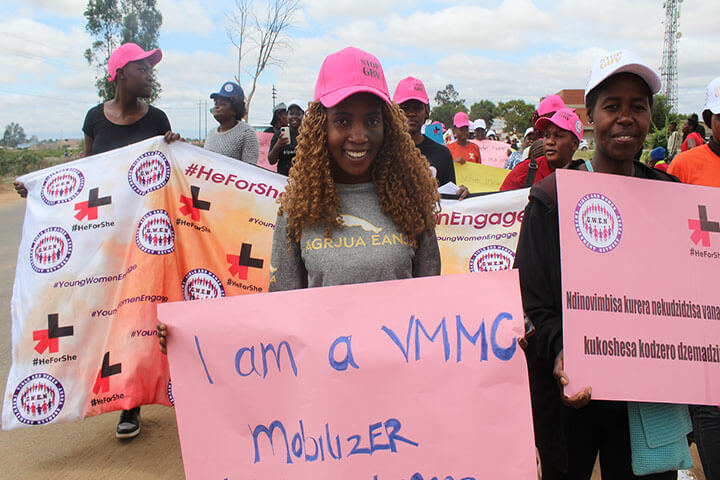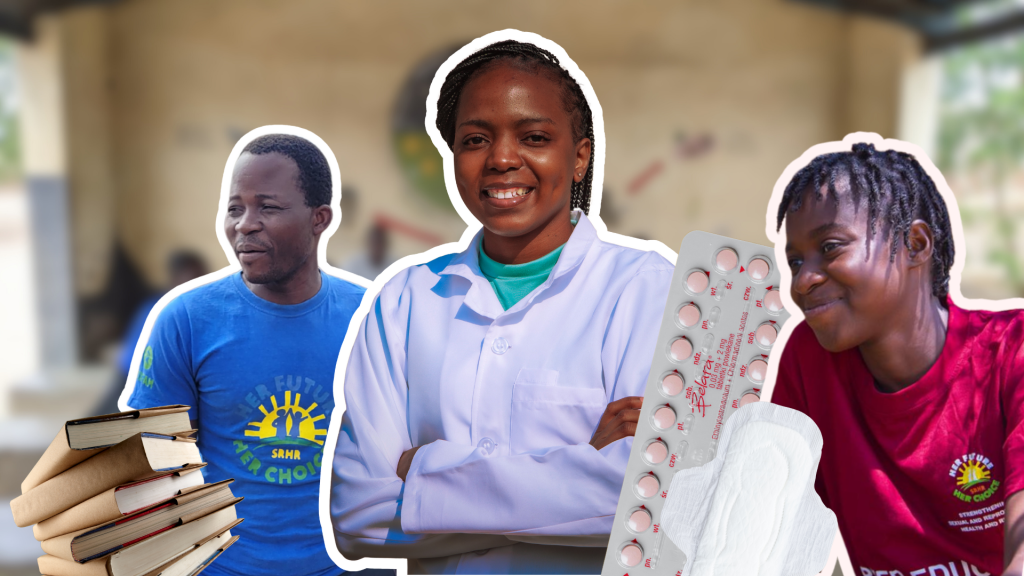A Visit to Cape Town: Lessons from the Global Movement for Fair Care Work
Imagine waking up every day to care for others - cooking, fetching water, helping elders, children, and people with disabilities - often without rest and with little or no pay. This is the reality for millions of women and girls worldwide who disproportionately shoulder most of the world’s care work. Whether in Canada or across Africa in countries like Niger, Nigeria, South Africa, and Zimbabwe, care work, both paid and unpaid, is essential but often invisible and undervalued.
Yet, from Canada to Africa, feminists and care advocates are changing this, and we had the privilege of witnessing it firsthand.
Deepening Global and Regional Advocacy for Care Work

Learning event participants and Oxfam Canada staff Gabriela Cervantes in Cape Town, South Africa. Photo: Gabriela Cervantes/Oxfam
In November 2024, Oxfam Canada and Oxfam in Africa hosted a learning event in Cape Town, South Africa, focused on the “Deepening global and regional advocacy for care work” project. Care advocates from across the globe gathered to exchange lessons learned and discuss the challenges they face in ensuring care work is recognized, redistributed, reduced, and fairly rewarded.
As Paul Vingi, Oxfam in Africa’s gender justice campaigns and advocacy expert, points out, care work is the foundation of social and economic life in Africa. Due to entrenched cultural norms, women and girls across Africa are disproportionately responsible for unpaid and paid care work, limiting their opportunities for education, economic empowerment, and participation in public life - perpetuating gender inequality and exacerbating poverty.
In 2023, Oxfam Canada and Oxfam in Africa, with support from the Gates Foundation, supported five women’s rights and grassroots organisations in Niger, Nigeria, South Africa, and Zimbabwe, to launch advocacy campaigns demanding better recognition and fair treatment of care workers.
Transparency in Totality (TinT) Follow Taxes Nigeria
Transparency and Accountability in Totality Initiative-Follow Taxes has a history of promoting public transparency and accountability in various states across Nigeria, prioritizing legal recognition for care workers. Without legal protections, care workers are exploited and often unpaid. This situation particularly affects women, who frequently take on various jobs to provide for their families or uphold marriage and cultural traditions. To address this situation, Follow Taxes conducted research and influenced policymakers and community stakeholders, highlighting unpaid care workers' precarious social and financial status. They hosted the region’s first care work summit, where stakeholders discussed how care workers can be formally integrated into the social protection system. Lawmakers at the summit committed to creating a fairer care economy and improving conditions for care workers in Kaduna state. They are now considering a law to recognise care workers’ rights and ensure more equitable distribution of care work.
The care advocacy grant Follow Taxes received was “useful and flexible, resulting in a significant impact throughout Kaduna State. The advocacy efforts have raised awareness among lawmakers, and civil society organizations united in a collective voice to advocate for a more equitable distribution of care work, recognition, and value of care work in both formal and informal settings”.
Musa Sulaiman, Head of Programs and Partnership, Follow Taxes
People’s Health Movement South Africa
The People's Health Movement South Africa is part of a global network bringing together grassroots health activists, civil society organisations, and academic institutions. Their vision is a future where Community Health Workers (CHWs) in South Africa, who are often working in dangerous communities with poverty wages, no benefits, and precarious short-term contracts, enjoy permanent and decent employment. PHM is advocating for the South African government to recognise the importance of CHWs, emphasizing gender and pay equity, as 99% of CHWs are women who also bear additional family responsibilities. The grant enabled PHM to break down barriers and bring CHWs from different unions, jobs, and provinces together to strengthen their collective push for better working conditions. The grant further helped PHM to reach the most remote CHWs in rural areas to demand decent and permanent employment. They documented their work in this video. The PHM and the National Allied Health and Education Workers Union have been litigating the recognition of CHWs and care workers' rights in court. They recently won a case in the Labour Court, which ruled that Community Health Workers should be permanently employed (as opposed to precarious contract work or volunteer status).
GWEN: Envisioning a community where Girls and Women Thrive
GWEN is a community-focused organisation facilitating safe spaces in Zimbabwe for adolescent girls and young women (AGYW) aged 9 to 35 years. GWEN supports communities to address the burden of unpaid care and domestic work on young women. The failure to recognise, redistribute, and remunerate care work violates the rights of AGYW, making it difficult for them to pursue work and education, suppressing their potential and increasing health risks. GWNE is working to secure a public policy that recognises care and domestic work as work. A highlight from their project was to engage domestic workers on their labour rights and create a safe space for dialogue where employers and their employees, in this case, domestic workers, could openly discuss specific challenges, concerns, and opportunities.
Hope Sahel: a movement defending the rights of vulnerable youth and women
Hope Sahel is an advocacy, development, and humanitarian organisation dedicated to improving the living conditions of young people and their communities in Niger. Their work with the care advocacy fund built on their efforts to ratify the International Labour Organisation (ILO) resolution 189 on decent work for domestic workers. Their priority is to secure a domestic law that recognises and protects the rights of domestic workers like all other workers. The care advocacy grant helped them to demonstrate the silent suffering of care workers due to the lack of legal attention and protections, absence of sick leave or rest days, and late or non-payment of wages. Hope Sahel organised a dialogue with decision-makers in the Ministry of Justice and the Ministry of Public Service and Labour, who acknowledged their duty to implement ILO189 and highlighted that some reforms are already underway to improve conditions in the care sector. Recognising the literacy gap between care workers and ministries, they turned to popular education tools like street cinema and comics to raise awareness, mobilise care workers, engage the public and convince policymakers.
The Disability, HIV and AIDS Trust
DHAT is a Zimbabwe-based, not-for-profit regional organization promoting HIV/AIDS responses that address the needs and empowerment of disabled people, through building and strengthening the capacity of Disabled People’s Organisations (DPOs) in Southern Africa and SADC countries. Using the 3R framework (recognition, reduction, and redistribution of unpaid care work), DHAT facilitated engagement between people with disabilities and NGOs, donors, and authorities using social media, community events, workplace discussions and government events around the International Day of the Disabled (December 3rd). DHAT also trained care workers in economic empowerment, disability management, and inclusion. One empowering result was the formation of a group of girls and women with disabilities as care work ambassadors, organising community dialogues and participating in decision-making at the family and community levels. This project has allowed DHAT to deepen their understanding of the Care and Disability intersection, and to expand their work internationally.
A Future Where Care Work is Valued
Listening to the powerful stories of progress made by these organisations, it became clear that the vision for the future is shared across countries and continents: a world where care workers’ well-being is supported through gender-responsive and inclusive policies. Whether in Canada, Zimbabwe, or South Africa, the struggle for equitable care work is global, and we are stronger when we unite.
The event in Cape Town celebrated the challenges and successes shaping the future of care work. While we still have much work ahead of us, momentum is building, and we are heading in the right direction. One thing was evident in Cape Town: we all have a role in this global movement. Whether in Africa, Canada, or anywhere else, it’s time to recognise the value of care work and advocate for policies that support those who do it. Let’s continue to stand with care workers everywhere.
Because when we all care, we all thrive.


